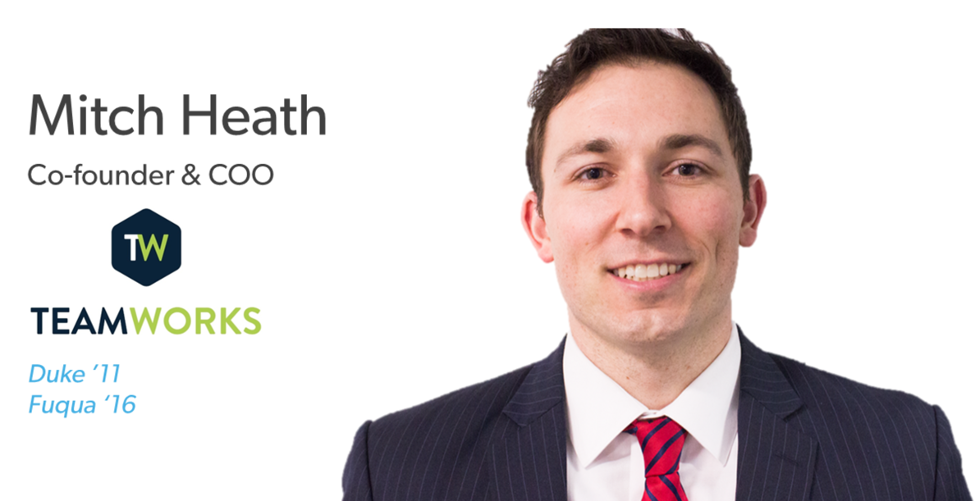Duke Weekend Executive MBA Student Blog

An Alumni Enterprise as an Entrepreneurial Case Study
As an MBA student at Fuqua, you will quickly become familiar with case-based learning

As an MBA student at Fuqua, you will quickly become familiar with case-based learning. Most cases that you will read are produced by Harvard Business School, but other top business schools like Fuqua are also producing their own.
I had the opportunity to participate in the first published case from Fuqua’s Center for Entrepreneurship and Innovation (CEI) in our Entrepreneurial Execution class with Professor Jamie Jones. Professor Jones and Rachel Classi, Daytime MBA ‘14 co-wrote the case on Teamworks, a software company headquartered in Durham that was founded by two Duke alumni. The organization’s goal was to help professional and collegiate athletic teams manage operations and stay organized. The case was based on a period when Teamworks was planning on raising a Series B round of capital and deciding on its strategy and milestones to solidify its pitch to potential investors.
Case Overview
We covered the case during our last three days of our elective term. The most unique part was how it played out in live format. Rachel, then VP of marketing for Teamworks, was present during the live case and provided background, guidance and insight into what the leadership team was thinking. Below is an overview of those exciting three days.
Day 1
Our classroom teams had to evaluate the strategic opportunities the Teamworks leadership was considering. That included deciding which opportunity they should pursue, determining how much funding should be raised. We then had to present our recommendations to senior leadership in a five-minute presentation.
Day 2
After successful pitches, Teamworks was presented with three term sheets. Our teams were responsible for evaluating the term sheets, comparing and contrasting the firms and offers, and selecting and justifying which offer they should accept. Day two ended with a case debrief interview with Mitch Heath, Daytime MBA ’16 and co-founder and COO of Teamworks.

Day 3
We had a live Q&A with Bill Luby, partner of Seaport Capital, lead investor in Teamworks’ Series A, as well as a Teamworks board member. Bill provided insight on why he invested in Teamworks, how the Series B round played out, and answered other questions on venture capital and private equity.

Takeaways
- Team-based interactive learning was one of the reasons I chose Fuqua. Having to run some financial models, making a strategic decision, presenting the strategy/idea, reading and evaluating term sheets was more fun and a more valuable learning experience than a lecture and discussion. Conceptually talking about raising capital is very different from building a financial model that determines how much capital you need. The latter being more difficult but more enriching.
- The Fuqua alumni community is strong and active. This case would not have been possible or as valuable without the time investment of Rachel, Mitch, and Bill. It is always great to see people giving back and expecting nothing in return.
- Teamworks is a great example and reminder of the quality of Fuqua entrepreneurship. Teamworks raised a Series C in 2020 bringing their total funding to $45 million and now serves over 3,000 teams globally. As a former collegiate athlete, I personally enjoyed studying Teamworks and seeing how they are solving a major problem for sports teams and programs.
Summary
The Teamworks case is a prime example how Fuqua, with the help of its alumni, is innovating the learning experience for students. Having wrapped up my final coursework for the Weekend Executive MBA program and reflecting on the past 22 months, I am grateful that the program included these enriching experiences.



